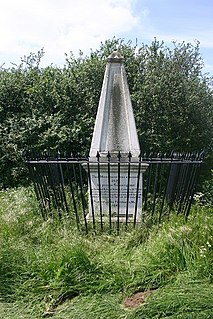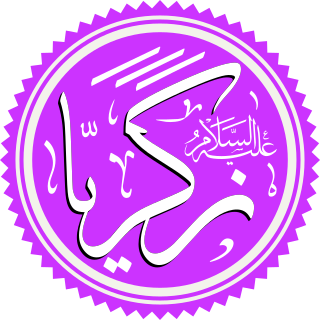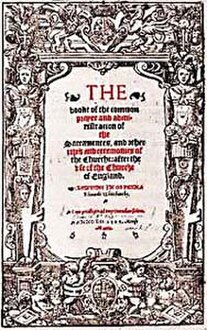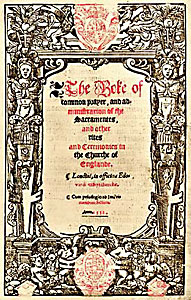William Pyckes
He was a tanner, and lived in the parish of St Margaret's Ipswich, which occupies the area directly to the north of the town centre, outside the medieval earth rampart. The church of St Margaret's stands adjacent to Christchurch Mansion and Park, which was built during Wyl Pyckes' lifetime. The Mansion stood on the site of the former Holy Trinity Priory, one of the two houses of Augustinian canons in the town, which was dissolved and became the property of Sir Thomas Pope (friend of Thomas More, Wolsey's successor as Chancellor), before being demolished to make way for the new brick mansion built by Edmund Withypoll.
The christenings and deaths of the children of Wyl Pyckes are recorded in the register of St Margaret's Church, between 1541 and 1558. He may therefore have been born around 1520. He was a believer in the reformed faith, and was of a hospitable disposition, generous toward the poor, and often opened his doors to give comfort to those who were hunted for their beliefs. He had absented himself from public worship for three years, following the accession of Queen Mary, since the Roman Mass was contrary to his conscience. His name appears in a list of dissenting persons of St Margaret's, drawn up on 18 May 1556, entitled A complaint against such as favoured the Gospell in Ipswich, exhibited to Queene Marie's Counsaile. Pyckes was a diligent student of the Bible, and possessed a copy of the Matthew Bible, containing the translations of Tyndale and Coverdale, which, although bearing King Henry VIII's royal licence, had since been suppressed and became a forbidden book.
A presentiment of death
Shortly after Midsummer 1556, Wyl Pyckes was sitting in his garden, facing south, with the Bible open upon his knee. "Suddenly fell down upon his book, between eleven and twelve o'clock of the day, four drops of fresh blood, and he knew not from whence it came. Then he, seeing the same, was sore astonished, and could by no means learn from whence it should fall; and wiping out one of the drops with his finger, he called his wife and said, 'In the virtue of God, wife, what meaneth this? Will the Lord have four sacrifices? I see well enough the Lord will have blood. His will be done, and give me grace to abide the trial! Wife, let us pray, for I fear the day draweth nigh.'"
The meeting at Islington
A few days after this, he went up to London to take part in a meeting with some forty men and women who met together for prayer and Bible study. This took place in a back close, 'in the field by the town of Islington', the chosen place being a walled garden so that they would not be discovered but a man looked over the wall and eventually greeted them, saying that 'they looked like men that meant no hurt.' One of their company then asked his permission for them to stay there, thinking perhaps he was the owner, and he repeated the same words and went away. They resumed their readings, and suddenly the Constable of Islington appeared among them, with six or seven other men, armed, and demanded that their books should be handed over.
Executions
Of the twenty-two who had given their names, thirteen remained constant to their principles and held out against the demands. They were condemned to die, and were executed in two separate groups. The first group, of seven, consisted of Henry Pond (or Houde), Reinald Eastland (or Launder), Robert Southain/Southam, Matthew Ricarby/Ricarbie, John Floyd/Flood, John Holiday/Hollyday and Roger Holland, and were burnt at Smithfield on 27 June 1558. Roger Holland embraced the stake and the bundles of reeds for the fire, making the following prayer:
"Lord, I most humbly thank Thy Majesty that Thou hast called me from the state of death, unto the Light of Thy Heavenly Word, and now unto the fellowship of Thy saints that I may sing and say, 'Holy holy holy, Lord God of hosts!' And Lord, into Thy hands I commit my spirit. Lord bless these Thy people, and save them from idolatry."
And so, praying and praising God with his eyes raised to heaven, he ended his life.
The second group, of six, consisted of Robert Mills, Stephen Cotton, Robert Dynes, Stephen Wight (or Wreight), John Slade and William Pikes (or Pikas/Peckes), and suffered in a similar way at Brentford on 14 July 1558. Pikes prayed for 'grace to abide the trial', and animated by his faith he approached the stake 'joyfully'.

John Rogers was an English clergyman, Bible translator and commentator. He guided the development of the Matthew Bible in vernacular English during the reign of Henry VIII and was the first English Protestant executed as a heretic under Mary I of England, who was determined to restore Roman Catholicism.
Religions with the belief in a future judgment or a resurrection of the dead or of purgatory often offer prayers on behalf of the dead to God.

Rowland Taylor was an English Protestant martyr during the Marian Persecutions.
Consecration is the solemn dedication to a special purpose or service. The word consecration literally means "association with the sacred". Persons, places, or things can be consecrated, and the term is used in various ways by different groups. The origin of the word comes from the Latin stem consecrat, which means dedicated, devoted, and sacred. A synonym for to consecrate is to sanctify, a distinct antonym is to desecrate.
The Ipswich Martyrs were nine people burnt at the stake for their Lollard or Protestant beliefs around 1515-1558. The executions were mainly carried out in the centre of Ipswich, Suffolk on The Cornhill, the square in front of Ipswich Town Hall. At that time the remains of the medieval church of St Mildred were used for the town's Moot Hall. Later, in 1644 Widow Lackland was executed on the same site on the orders of Matthew Hopkins, the notorious Witchfinder General.

Matthew 15:27 is a verse in the fifteenth chapter of the Gospel of Matthew in the New Testament.
Thanksgiving after Communion is a spiritual practice among Christians who believe in the Real Presence of Jesus Christ in the Communion bread, maintaining themselves in prayer for some time to thank God and especially listening in their hearts for guidance from their Divine guest. This practice was and is highly recommended by saints, theologians, and Doctors of the Church.
Robert Samuel was an English priest of East Bergholt in Suffolk, England who was imprisoned, tortured and burnt to death as a judicial execution under the Marian persecutions, and is commemorated as one of the Ipswich Martyrs. His sufferings are recorded in John Foxe's Book of Martyrs.
Agnes Potten and Joan Trunchfield were two English Ipswich women who were imprisoned and burned at the stake during the Marian persecutions: both are commemorated among the Ipswich Martyrs. Their arrest followed immediately after the burning of Robert Samuel.
Alexander Gooch and Alice Driver were natives of the area around Woodbridge, Suffolk, England, who were arrested, put to an inquisition and burnt to death at the stake in Ipswich for their adherence to the protestant faith, as part of the Marian persecutions. Both are commemorated among the Ipswich Martyrs.
Kerby, whose Christian name is not known, was a man condemned by the Justices and executed by burning at the stake in Ipswich, Suffolk, for his Protestant beliefs, along with Roger Clarke. He is numbered among the Ipswich Martyrs. He died for denying the Roman Catholic doctrine of transubstantiation of the Host.
Vesting prayers are prayers which are spoken while a cleric puts on vestments as part of a liturgy, in both the Eastern and Western churches. They feature as part of the liturgy in question itself, and take place either before or after a liturgical procession or entrance to the sanctuary, as depends on the particular liturgical rite or use which is being observed.

The Bible usually uses the name of God in the singular, generally using the terms in a very general sense rather than referring to any special designation of God. However, general references to the name of God may branch to other special forms which express his multifaceted attributes. Scripture presents many references to the names for God, but the key names in the Old Testament are El Elyon, El Shaddai and YHWH. In the New Testament Theos, Kyrios and Patēr are the essential names.

Among Eastern Orthodox and Eastern-Rite Catholic Christians, holy water is blessed in the church and given to the faithful to drink at home when needed and to bless their homes. In the weeks following the Feast of Epiphany, clergy visit the homes of parishioners and conduct a service of blessing using the holy water that was blessed on the Feast of Theophany. For baptism, the water is sanctified with a special blessing.
Richard Argentine, alias Sexten, M.D,, was an English physician and divine.

According to the Islamic doctrine, Zakarīyā is a prophet and messenger of God (Allah), and a father of the prophet Yahya.

The 1549 Book of Common Prayer is the original version of the Book of Common Prayer (BCP), variations of which are still in use as the official liturgical book of the Church of England and other Anglican churches. Written during the English Reformation, the prayer book was largely the work of Thomas Cranmer, who borrowed from a large number of other sources. Evidence of Cranmer's Protestant theology can be seen throughout the book; however, the services maintain the traditional forms and sacramental language inherited from medieval Catholic liturgies. Criticised by Protestants for being too traditional, it was replaced by the significantly revised 1552 Book of Common Prayer.

The 1552 Book of Common Prayer was the second version of the Book of Common Prayer (BCP) and contained the official liturgy of the Church of England from November 1552 until July 1553. English Protestants were disappointed in the 1549 Book of Common Prayer for being too similar to traditional Roman Catholic services. The 1552 prayer book was revised to be explicitly Reformed in its theology. During the reign of Mary I, Roman Catholicism was restored, and the prayer book's official status was repealed. Elizabeth I reestablished Protestantism as the official religion, and a revised version of the 1552 prayer book was a component of the Elizabethan Religious Settlement. The 1552 version formed the basis for the 1662 Book of Common Prayer, which remains the official liturgical book of the Church of England.







